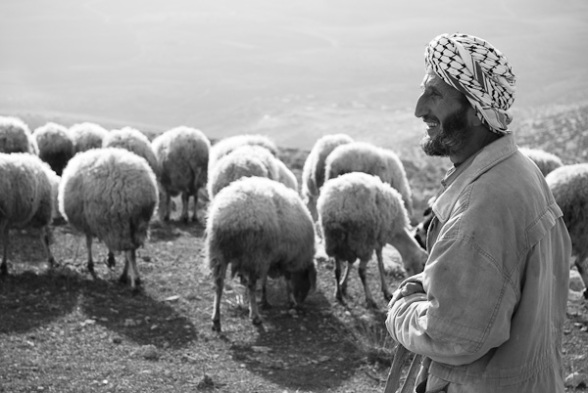Who Woulda Thought?
I want to begin this Christmas season by focusing on the call of the shepherds rather than moving right to the Nativity. In fact, if you follow the various gospel readings that the Church offers, you would find the vigil Mass (afternoon of the 24th) through the daytime Mass (Sunday mid-morning) you would find the Christmas story and the theology of the Christ across three of the four gospels--quite a rich fare which few, unfortunately, experience.
Back to the shepherds, then. Shepherds were a despised lot in Jesus' time. You can lump them in with tax collectors, prostitutes and Samaritans. Of course, as we have seen throughout God's interaction with humanity, this makes them prime candidates for a special grace. So, it was to them the invitation was extended. The much discussed "wise men" or magi, come later (probably didn't arrive until a year or so after the birth).
So, as the story goes, as with all angelic visitations, it begins with fear. It takes a lot to scare a shepherd who defends his flock from any number of hazards; they are a grizzly lot.

But, as the gospel records, "...they were struck with great fear". The appeal of the angel not to fear is based upon the message of a savior that will "be for all the people." This is followed by a "multitude of the heavenly host" singing "Glory to God in the highest". Quite a night for the shepherds, and some essential truths about the nature of God and salvation for us tonight.
Like God's appointing David as king (the least likely candidate), God's favor rests on Mary, Joseph, outsiders like the magi and shepherds. Notice the absence of anyone really important like Temple priests, scribes, pharisees, important legates or even the chief priest. God's dealing once again with the consummate outsiders, widely believed to be outside of salvation history. How ironic, then, that these were the people most intimately associated with God's arrival as the Christ.
If Advent has sharpened our senses for seeking justice and finding a place with the poor to be in the right place, this visitation of the shepherds remind us that we are now in the right place at the right time---with the poor, alone, late in the night. Dismal.
But it is with the outcast, far from the comfort of day, deep in the night, that God's greeting arrives proclaiming joy and salvation. The line from T.S. Eliot's poem Four Quartets comes to mind "...and now, under conditions that seem unpropitious." Like so much of what God has done in his relationship with humanity: "Who woulda thought?"
In your deepest moment of darkness and doubt, when your prayers are bouncing back off of the ceiling, ridiculing your attempt to reconnect with God after seemingly failing every time, I want to remind you that those prayers that you think mock your devotion made it through. They were in God's heart before they ever left your lips. Like the shepherds, the most unlikely folks in the most unlikely place, God finds us. Search no further than your need, your loneliness, your feelings of being left out. For the still small voice of God speaks to you here, now, in this blog, inviting you to come home and find the sign of God being with you in the most humble of circumstances. Join with Christians world wide to not give up following the light until it rests over the manger where Christ is to be found---in the most unlikely place, at the most unlikely time.
Reprinted from Christmas, 2012












